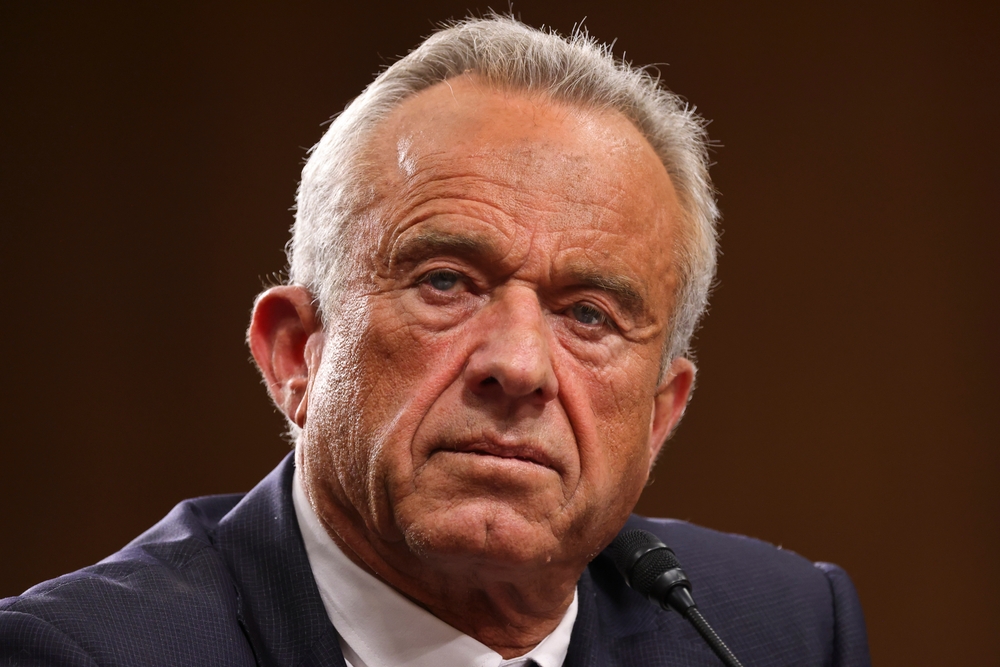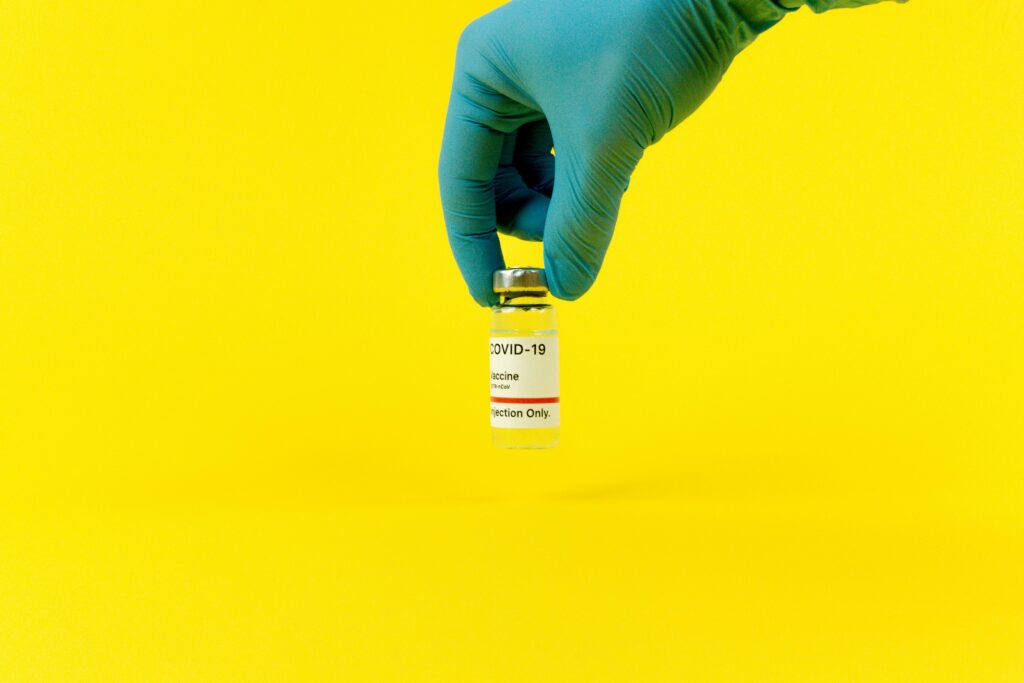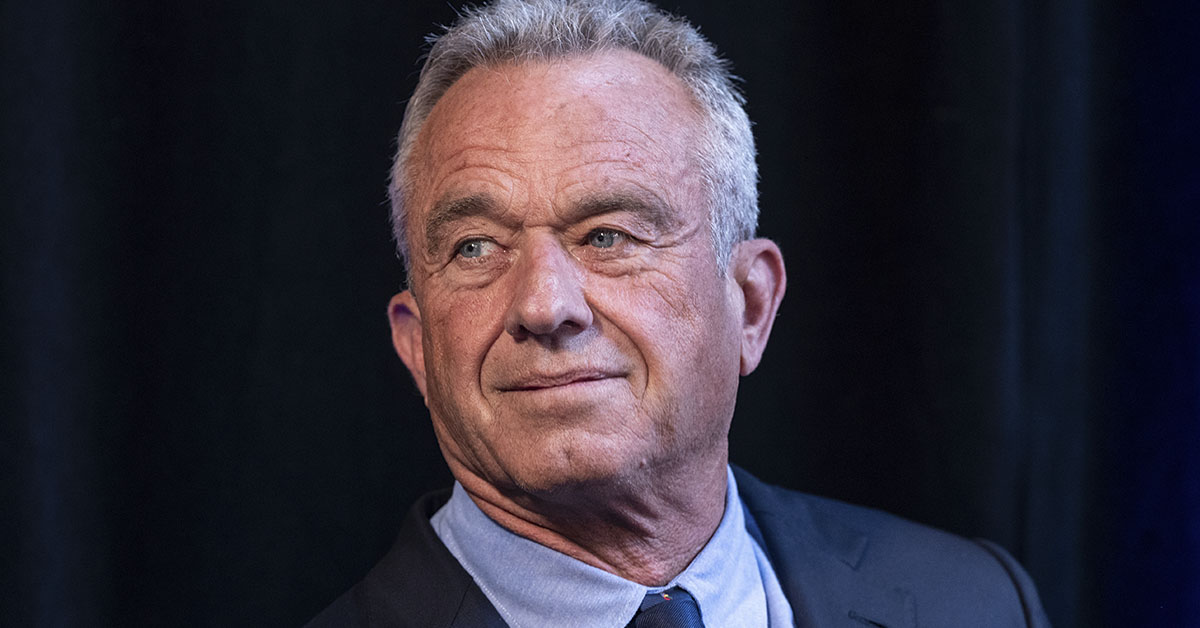Health and Human Service Secretary, Robert F. Kennedy Jr. is in hot water after making controversial remarks regarding vaccine schedules for Black Americans. RFK Jr., who has a history of anti-vaccination remarks, is opting to change the public health system that will negatively impact Black Americans.
In 2021, RFK Jr. received intense backlash for his comments about vaccine schedules. RFK Jr. argued that the immune systems of Black people were stronger and needed fewer antigens. He suggested Black people require a different vaccine schedule “because their immune system is better than ours.”
RFK Jr.’s Vaccine Comments Ignite Controversy

Instead of rectifying his claim, which some medical experts claim is scientific racism, RFK Jr. doubled down on his claim. A major talking point during his Senate confirmation earlier this year centered around his anti-vaccine rhetoric. Medical experts strongly oppose his statements, calling them inaccurate, misleading, and dangerous to public health. Kennedy’s nomination as Health and Human Services Secretary has placed these comments under heavy scrutiny, intensifying concerns about potential impacts on national health policy.
Medical Community Reaction

Several leading organizations, including the American Academy of Pediatrics, allege Kennedy’s policy changes threaten child health and vaccine infrastructure. Some major medical associations plan to sue RFK Jr. over his changes to the COVID-19 vaccine schedule. His remarks received backlash even among senators, including Sen. Angela Alsobrooks, who challenged the scientific validity of his claims.
RFK Jr. references a “series of studies” while claims research validates his racist claims which Alsobrook scrutinized him on. Public health professionals have all called out Kennedy’s claims and denounced them as baseless with no real grounding in science. Experts emphasized there is no scientific support for altering vaccination routines based on race. They warned such rhetoric undermines trust in evidence-based medicine and public health systems.
The Science Behind Vaccine Schedules
Medical authorities underline that race is a social, not biological, category. Decisions about vaccine schedules are tailored towards an individual’s age, exposure risk, and health condition, not genetics or ethnicity. Any claim that immune systems vary by race lacks credible evidence and contradicts the principles of immunization practice. Scientific reviews say differences in immune response exist among individuals but do not justify different vaccine schedules by racial identity.
Roots of Scientific Racism in Medicine
Scientific racism has birthed horrific practices such as Nazi Germany’s Eugenics movement. The Nazi’s aimed to use pseudoscience to “purify” and cleanse the German population of “undesirables”. It has also historically led to unequal care under false “scientific” claims towards marginalized communities. The idea that Black people are biologically different has dangerous roots in scientific racism. For example, a false belief that Black individuals had stronger kidneys lingered in medical manuscripts until 2021. Such myths historically led to unequal treatment, diminished care, and worse outcomes, especially when embedded and in policy.
Misinformation’s Impact on Vaccine Hesitancy and Public Trust
RFK Jr.’s claims further create a legitimate distrust from the Black community in the health care system. He also references historical abuses like the Tuskegee Syphilis Study, which further creates hesitancy amongst Black communities. His self-produced 2021 documentary called Medical Racism: The New Apartheid framed vaccination efforts as medical experiments and amplified vaccine fear. Experts warn this approach deepens vaccine hesitancy and hurts marginalized groups. Low vaccination rates in Black communities stem from systemic barriers and a long history of experimentation and discrimination, making misinformation especially harmful.
Policy Changes and Their Effects on Marginalized Groups
As Secretary of Health and Human Services, RFK Jr. halted $500 million in mRNA vaccine funding. He also removed all 17 members of the CDC’s ACIP advisory panel and replaced them with individuals criticized for lacking vaccine expertise. RFK Jr.’s recent alterations of vaccine guidelines and panel memberships might disproportionately affect Black Americans, creating wider health disparities. These changes eliminate the minimal safeguards that typically protect marginalized populations from medical misinformation, potentially exposing marginalized communities to dangerous health consequences.
Criticism of Policy Repercussions
Health experts warn that scrapping mRNA funding and expert advice capacity significantly erodes advancement in medical health care. mRNA technology helped save millions of lives during the COVID-19 pandemic and supports progress in cancer and HIV treatments. Critics argue these policy reversals ignore data and ultimately hinder preventive measures to future disease threats. Health experts also emphasize that mRNA funding supports ongoing trials for cancer treatments, rare diseases, and faster pandemic vaccine response.
Conclusion
RFK Jr.’s comments and policies risk reinforcing racial myths and destabilizing public health. Accountability, together with separating the science from the bias, is paramount to not repeat the mistakes of history. Moving forward requires immediate action to restore science-based vaccine policies and rebuild trust through transparent community engagement and evidence-driven health recommendations. Rejecting unsupported racial claims and rebuilding community trust are vital steps to ensure health policies serve all Americans fairly and effectively.
Read More: Big Tech or Big Brother? RFK Jr. Wants Every American Wearing a Device by 2029

